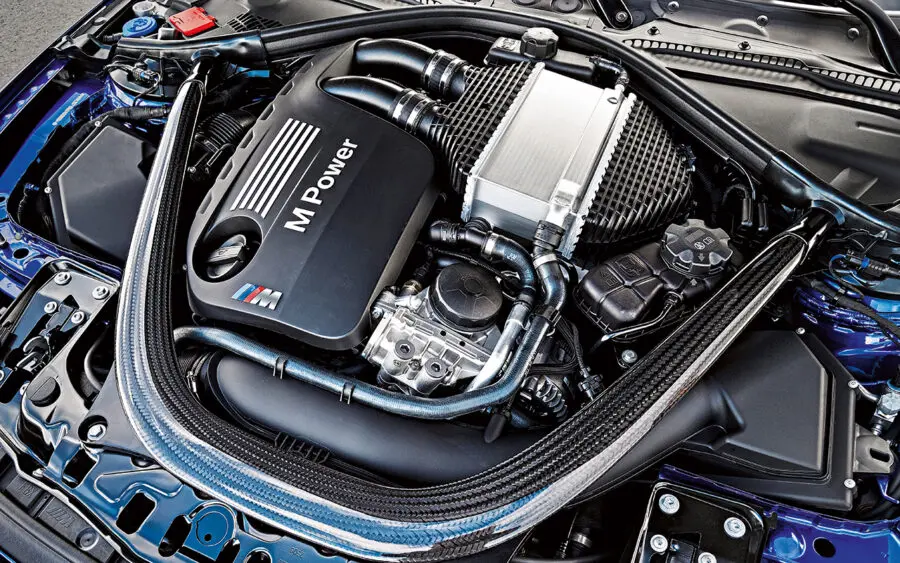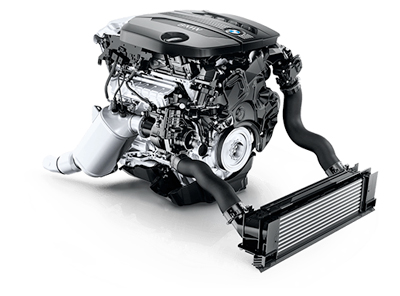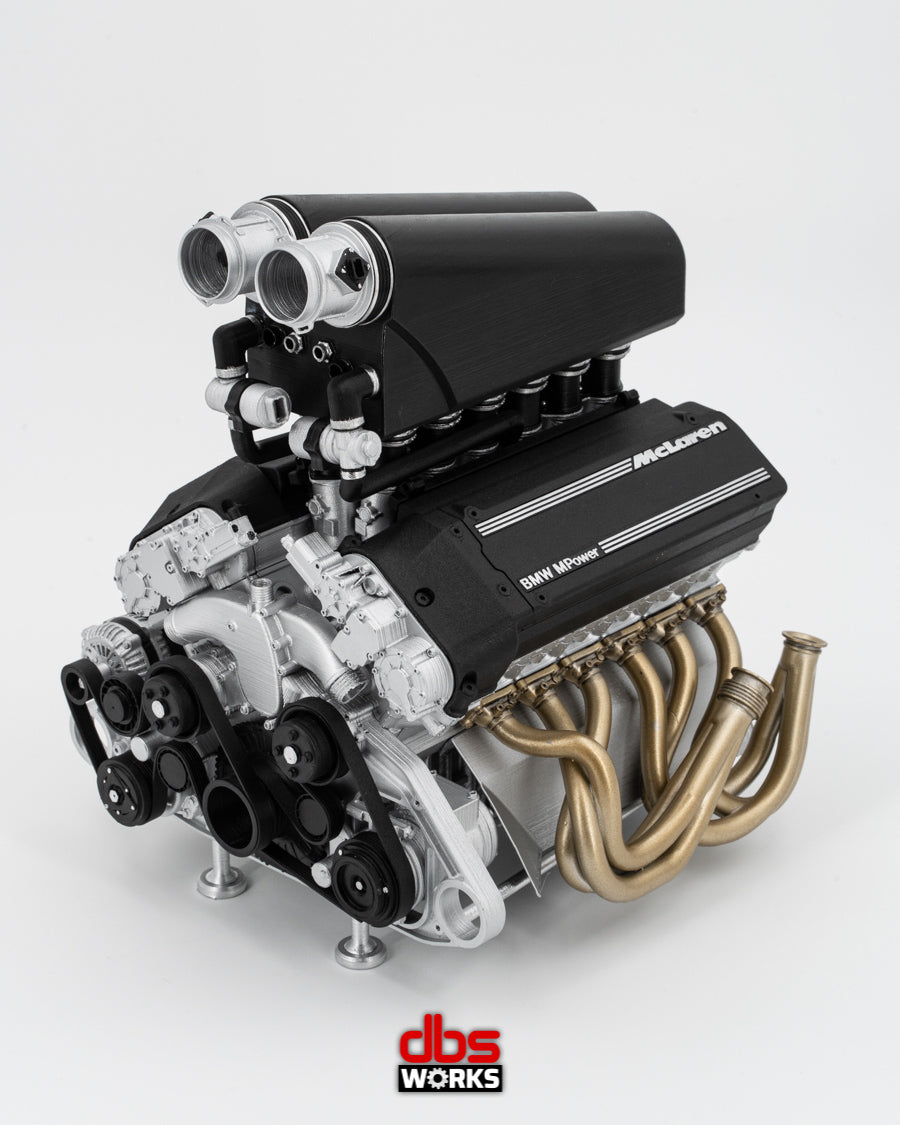A Beginner's Guide to Choosing the Right BMW Engine for Your Needs
A Beginner's Guide to Choosing the Right BMW Engine for Your Needs
Blog Article
Revealing the Intricacies of Next-Generation Power Units: a Deep Study Advanced Engine Advancements and layouts
In the realm of automotive engineering, the unrelenting pursuit of effectiveness, efficiency, and sustainability has actually thrust the evolution of power units to unmatched elevations. As we base on the precipice of a brand-new period in transport, the complexities of next-generation engine designs beckon us to check out the cutting-edge innovations and technologies that promise to redefine the driving experience. From innovative products that push the borders of sturdiness and weight reduction to sophisticated turbocharging and turbo charging systems that raise power output to brand-new levels, each component of these power devices holds a crucial to unlocking the future of auto design. Delving much deeper right into the realms of exhaust control, intelligent engine monitoring systems, and the perspective of power unit development, we locate ourselves on the cusp of a change that promises to improve the landscape of mobility as we understand it.
Advancement of Engine Materials

The shift towards progressed engine products has actually additionally enabled engineers to develop engines with greater power outcomes while keeping gas performance standards. The use of lightweight materials minimizes the general weight of the engine, leading to boosted gas economic situation and reduced exhausts. In addition, advancements in materials innovation have enabled much better thermal monitoring within engines, causing increased reliability and longevity.
Turbocharging and Supercharging Technologies
Just How do Turbocharging and Supercharging Technologies change engine efficiency and effectiveness in modern lorries? Supercharging and turbocharging are technologies that significantly enhance engine efficiency by enhancing the quantity of air consumption into the burning chamber. Turbocharging accomplishes this by making use of a wind turbine driven by exhaust gases to pressurize the intake air, while turbo charging makes use of a belt- or chain-driven compressor to achieve the same result.
These modern technologies make it possible for smaller sized, much more fuel-efficient engines to generate power equal to larger ones, recognized as downsizing. By requiring even more air into the cyndrical tubes, turbocharging and supercharging improve burning efficiency, leading to increased horse power and torque result without a considerable rise in engine size. This brings about much better velocity, hauling ability, and overall driving performance.
In addition, turbocharging and supercharging contribute to boosted fuel effectiveness by permitting the use of smaller sized engines that consume less gas under regular driving conditions - bmw engine. This mix of boosted performance and effectiveness has actually made turbocharging and supercharging essential parts of many modern engine styles
Exhaust Control and Environmental Impact
With enhancing worldwide problems relating to air top quality and environmental sustainability, the implementation of discharge control modern technologies in vehicles plays a vital duty in decreasing unsafe pollutants released right into the ambience. Modern vehicles are geared up with advanced exhaust control systems that help reduce the ecological influence of automotive operations. Catalytic converters, for example, are designed to convert hazardous gases such as carbon monoxide, nitrogen oxides, and hydrocarbons into less dangerous substances like carbon dioxide and water vapor.
Additionally, improvements in engine technology, such as the combination of exhaust gas recirculation systems and discerning catalytic reduction, have actually substantially More Bonuses added to lowering emissions. These innovations function in tandem to maximize burning performance and decrease the release of harmful contaminants into the air. Furthermore, the growth of crossbreed and electric lorries stands for a vital step towards lowering the overall ecological footprint of the transport market.
Intelligent Engine Management Systems

Furthermore, these systems allow vehicles to satisfy stringent exhausts requirements without jeopardizing performance, providing a more eco pleasant driving experience. The integration of artificial knowledge and machine learning abilities in engine monitoring systems remains to push the boundaries of what is possible, leading to further renovations in effectiveness, dependability, and total car efficiency. bmw engine. As automobile technology breakthroughs, intelligent engine monitoring systems will play a vital role fit the future of transportation towards a much more lasting and effective direction
Future Trends in Power Unit Growth
As smart engine monitoring systems lead the means for enhanced control and optimization in contemporary cars, future trends in power system development are positioned to redefine the landscape of automobile propulsion technologies. Among the key patterns driving technology in power unit growth is the change towards electrification. With an enhancing focus on sustainability and minimizing carbon exhausts, crossbreed and electrical powertrains are coming to be much more common in the automobile industry. These different source of power offer improved effectiveness and performance while lining up with strict environmental guidelines.
One more considerable trend is the integration of sophisticated materials and manufacturing methods. Lightweight materials such as carbon fiber and aluminum are being made use of to reduce general car weight, enhancing gas performance and performance. Continue Additionally, innovations in 3D printing and additive production are making it possible for the production of complicated engine elements with higher precision and resilience.
Moreover, expert system and device knowing are playing an essential duty in optimizing power system performance. These published here modern technologies permit for real-time tracking and flexible control, bring about more dependable and effective power shipment. Generally, future fads in power unit growth are geared towards effectiveness, efficiency, and sustainability, driving the vehicle industry towards a new age of propulsion technologies.

Final Thought
In verdict, the innovations in engine materials, turbocharging, discharge control, and intelligent administration systems have led the way for next-generation power units. These technologies have not only enhanced performance and performance however also minimized environmental influence. As technology proceeds to develop, future patterns in power device advancement are likely to concentrate on additional enhancing sustainability and enhancing power outcome. The intricate styles and technologies in modern engines display the recurring evolution of automobile modern technology.
Discovering the dynamic innovations in engine materials has been pivotal in enhancing the performance and effectiveness of contemporary engines. Over the years, the evolution of engine products has played a crucial role in pushing the boundaries of what engines can achieve.The shift towards advanced engine products has actually additionally enabled engineers to design engines with greater power results while keeping gas performance criteria.The execution of smart engine administration systems in contemporary cars has reinvented the method engines are managed and enhanced for performance and effectiveness. By gathering data in real-time and evaluating it with advanced algorithms, smart engine monitoring systems can adjust to driving styles, environmental factors, and engine health and wellness to take full advantage of power outcome while lessening gas usage and discharges.
Report this page